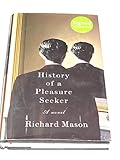David E. Spiro
David E. Spiro is the Founding Principal of The Strategy Practice, LLC, a boutique consulting firm that creates business strategies and advice on risk management for private equity firms and the financial services industry.
Before switching careers to full-time management consulting, he taught International Political Economy, International Relations, and Middle East Politics at Brandeis, Columbia, and Harvard Universities, and the University of Arizona.
Mr. Spiro is the author of The Hidden Hand of American Hegemony: Petrodollar Recycling and International Markets (Cornell University Press, 1999), as well as articles and book chapters on a broad range of topics including game theory, statistical methods, theories of international peace and conflict, Middle East politics, the politics of international financial markets, American foreign economic policy, identity theft, law and society, and immigration policy. Recently he also began writing reviews of alternative rock bands for AmpeaterMusic.com. His academic work is assigned in university courses around the world.
He received a Ph.D. in International Political Economy from Princeton University, and before that an AM in Politics with a certificate in Near Eastern Studies, and an AB in Near Eastern Studies, also from Princeton. As well, he attended Middlebury College, Stanford University, Tel Aviv University, and the Bourguiba Institute for Arabic Studies in Tunis. As an undergraduate, he was a research aide to Abba Eban, formerly the Foreign Minister of Israel.
He has been a Fulbright Scholar, Ford Foundation Fellow, NEH Fellow, Council on Foreign Relations term member, London School of Economics Research Scholar, and Brookings Institution Guest Researcher.
In his spare time Mr. Spiro enjoys flying single engine airplanes and going to the opera. He lives in New York City and Tucson, Arizona, and teaches graduate courses (on International Political Economy and on Statistics) as an adjunct at Columbia and at Penn.





























